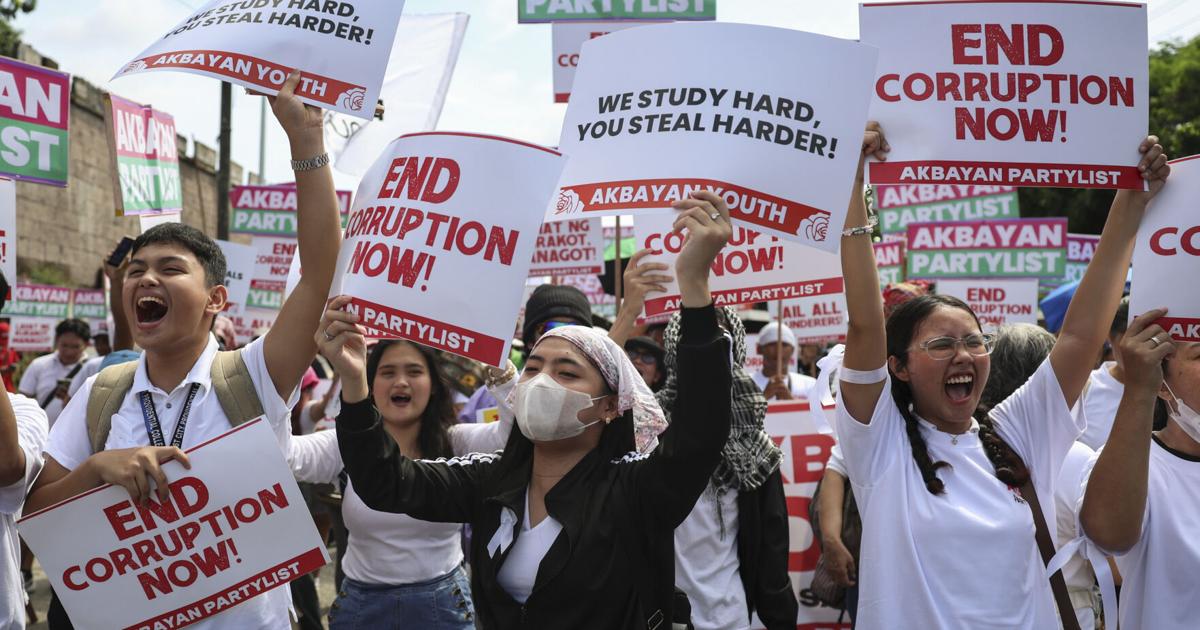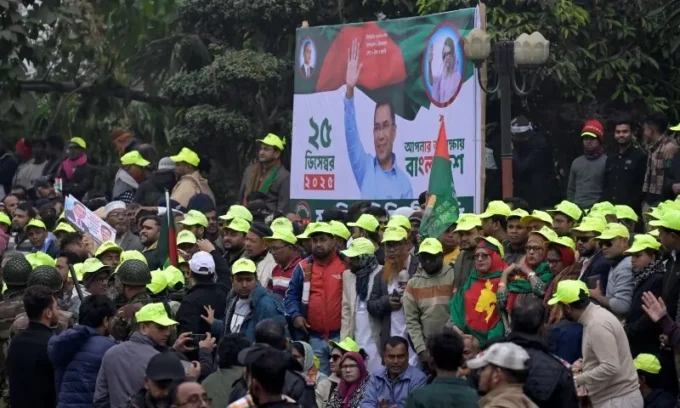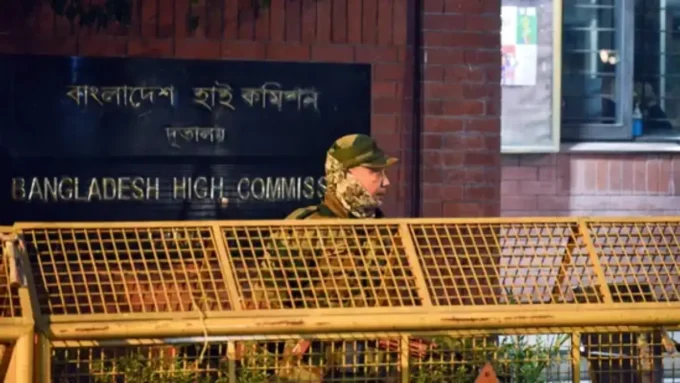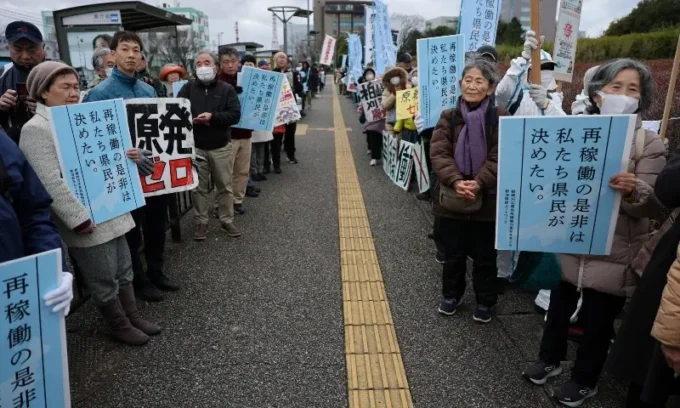MANILA: More than 200 people were arrested in the Philippine capital on Sunday after clashes erupted during anti-corruption protests that had otherwise drawn thousands in largely peaceful demonstrations. Police confirmed on Monday that at least 216 individuals were taken into custody, including 88 minors, after riot police used water cannons and deafening sirens to disperse crowds of masked protesters hurling rocks.
Manila City Mayor Isko Moreno said the youngest detainee was just 12 years old. Authorities reported that 93 police officers were injured in the unrest, while around 50 people were treated in hospitals for protest-related injuries, according to the Department of Health. Police officials cautioned that the arrest tally could rise further as detainees continued to be processed.
The protests were fueled by mounting public anger over a sprawling corruption scandal involving bogus flood-control projects that allegedly siphoned off billions of pesos in public funds. The scandal has already forced the resignation of the leaders of both houses of Congress and implicated several lawmakers. President Ferdinand Marcos spotlighted the issue in his July State of the Nation address, warning that “ghost infrastructure” had drained state resources at a time when the country faces worsening floods and climate-related disasters.
Sunday’s protests drew a broad cross-section of society, including families, clergy, activists, and opposition politicians. However, violent street battles overshadowed much of the day’s peaceful demonstrations. Police vehicles were set ablaze, windows of a precinct headquarters were smashed, and groups of masked youths clashed with security forces. “So far, none of them are saying the reasons behind their actions or if somebody paid them to do it,” police spokesperson Major Hazel Asilo told AFP. “As soon as we know their affiliations, we can know if they were part of the protesters or if they were just causing trouble.”
The financial stakes are immense. The Department of Finance estimates that corruption linked to the flood-control projects cost the economy as much as 118.5 billion pesos ($2 billion) between 2023 and 2025. Environmental group Greenpeace, however, argues the losses may be closer to $18 billion. Critics say the scandal has intensified public frustration with systemic graft in the Philippines, which continues to erode trust in governance.
The unrest comes as the country braces for fresh climate-related hardship. Super Typhoon Ragasa is bearing down on the northern provinces, threatening to unleash more heavy flooding. With the Philippines enduring an average of 20 typhoons each year, millions of citizens in disaster-prone regions remain locked in cycles of poverty made worse by corruption scandals that divert funds from critical infrastructure.















Leave a comment